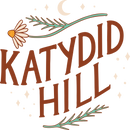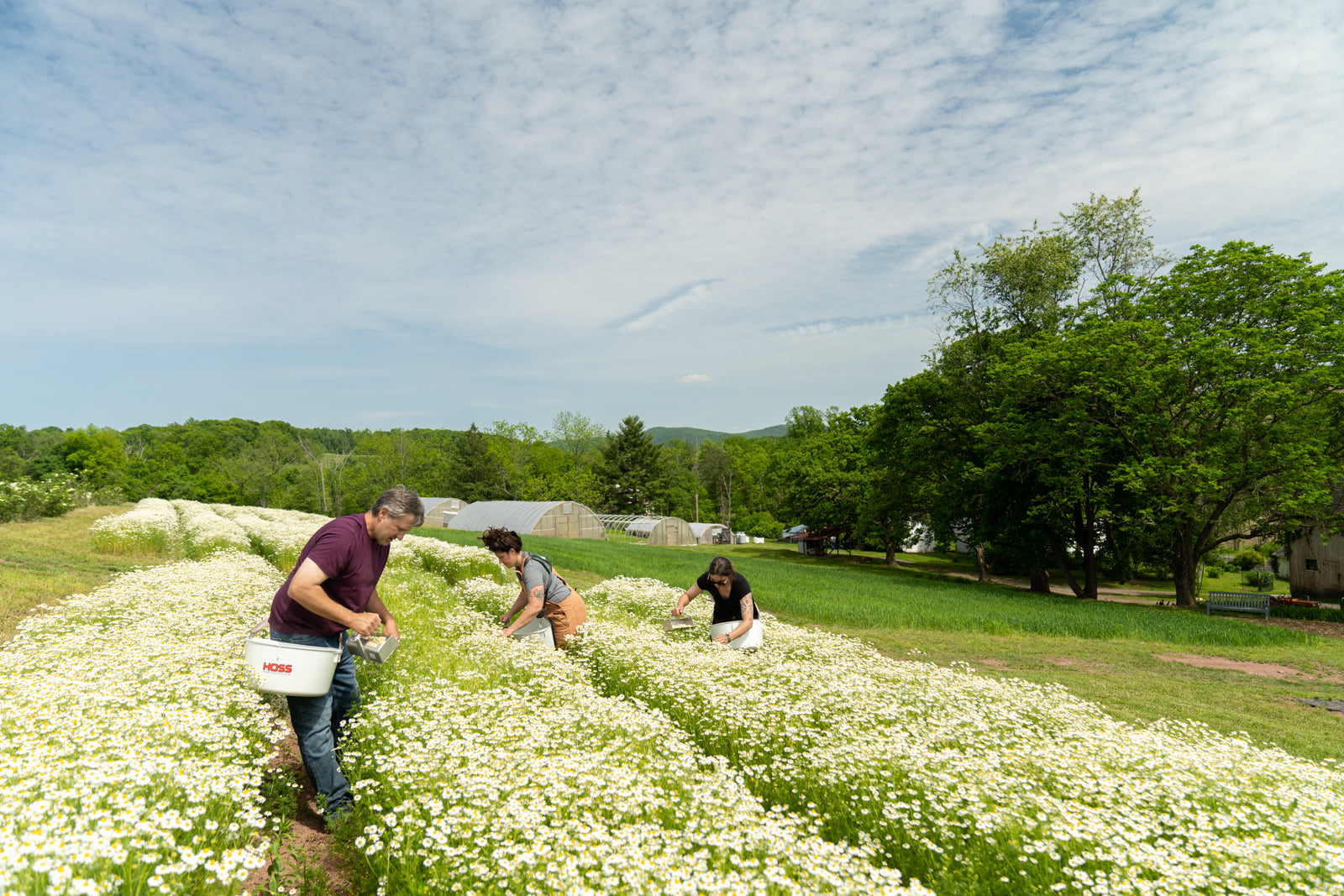Farming with heart
For us, regenerative farming is always about learning and trying to do our best. Just as often as we get things right, we mess things up, so to say we have a perfect system for growing herbs wouldn't be true. What we do is put lots of care and heart into growing the herbs for you.
Let's dive into some details.
Since I (Katelyn here!) became the caretaker of this land in 2016, we have always followed USDA organic standards and have been Certified Naturally Grown since 2017.
In fact, I never learned any other way to farm - wouldn’t know how to use an herbicide if I tried! I finally decided to buckle down and fill out the extra paperwork in order for the farm to become USDA Certified Organic, which will be official in 2023.
Organic certification mostly focuses on what we don’t do: we never use pesticides, herbicides, GMO seed, or synthetic fertilizers.
We know that there is much more to work on and we are always trying to go above and beyond these standards, including: increasing soil organic matter, reducing energy use on the farm, creating abundant habitat for the birds and the bees and more.
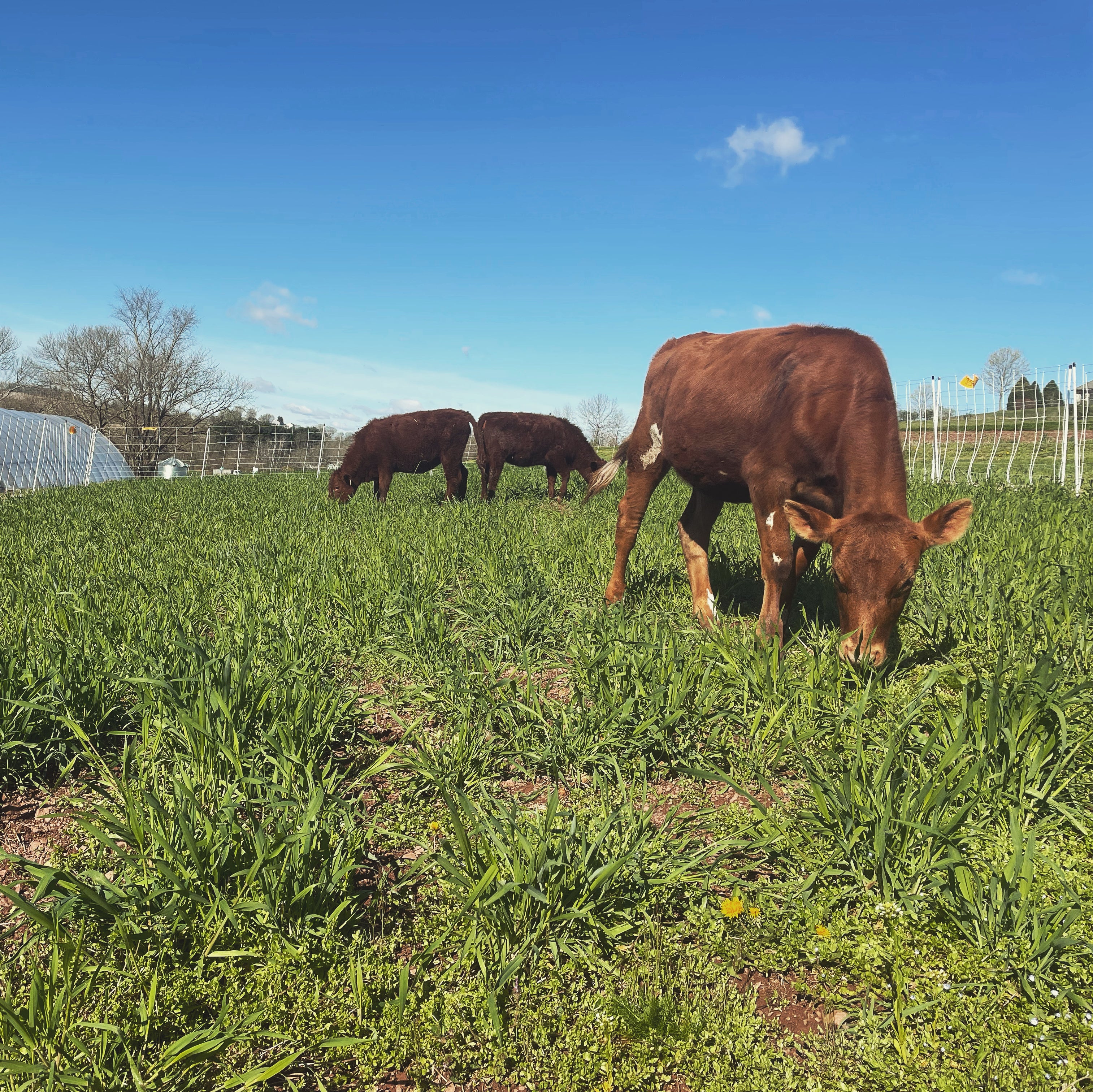
We are also working on integrating livestock into our crop system - it’s one of the best things that we can do to close the nutrient loop on our farm, rely less on external inputs and build up soil fertility.
Also the animals are just so dorbs!
We have a family dairy cow named Reba (still a heifer but I’ll let you know how it goes once we are milking by hand every day!), two beef mama cows and two mama sheep to start our little flerd (flock of sheep + herd of cows :) ).
They all contribute to the farm ecosystem, providing us with that good stuff - manure! - and being little natural lawn mowing machines.
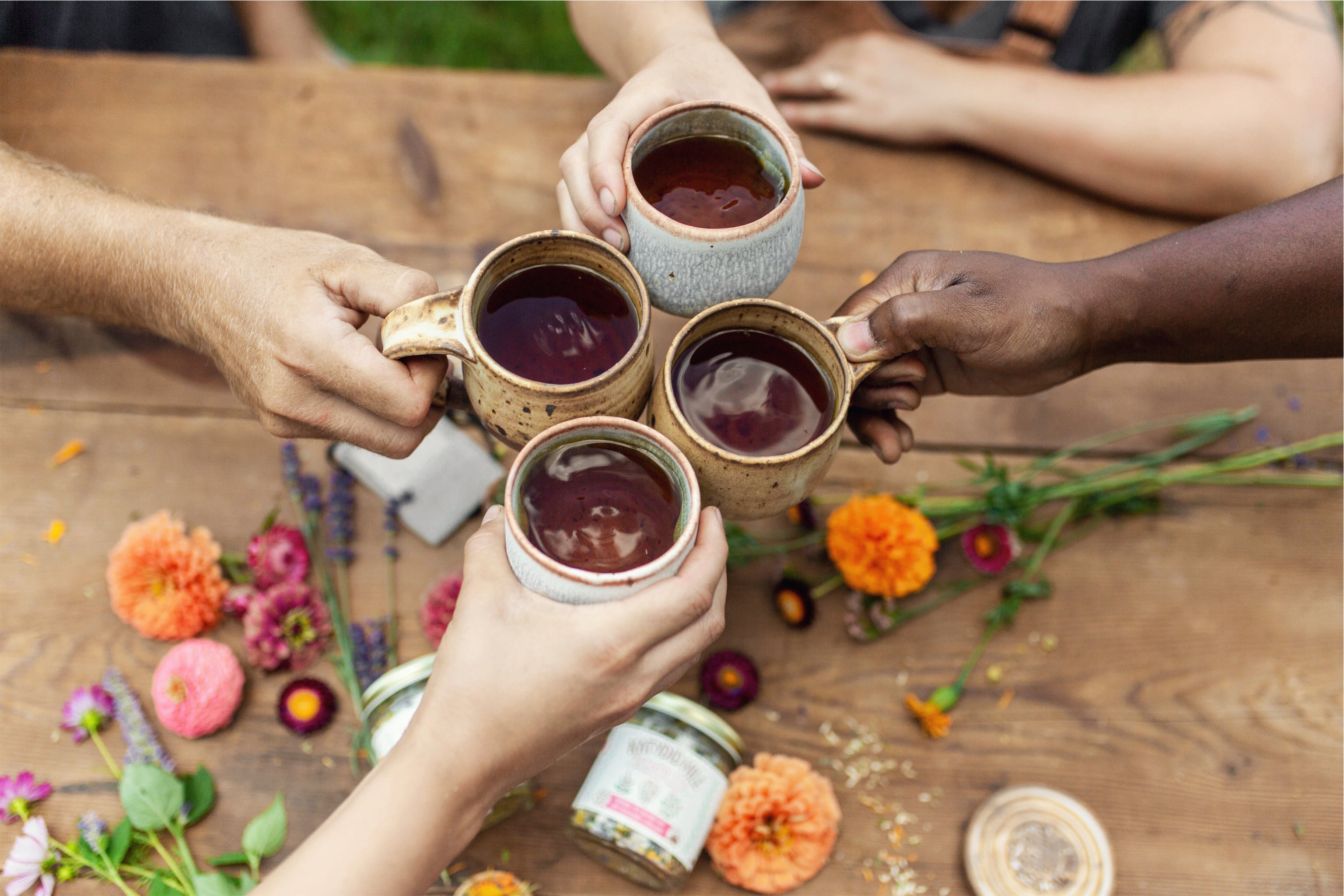
Farmers aren’t necessarily known for taking great care of themselves.
Often soil, animal and plant health gets prioritized over human health, and the human sustainability piece can often get lost in the mix.
The whole “love what you do” thing is actually quite tricky sometimes, but we really try to care of ourselves and the people we work with so that we can all keep growing herbs for years to come.
Sometimes it’s little things like taking time to stop at the top of our hill and look at the plants and the mountains and be in awe.
We have morning meetings with the farm crew and volunteers and guests alike, and lunchtimes are enjoyed together under an old apple tree by the summer kitchen. These are times where we share thoughts and feelings about farming and life - even a little camaraderie goes a long way in supporting each other.
Farming regeneratively is a collaborative process rebuilding and strengthening the soil and ourselves, and we learn more about it every day.
What does it mean to be pollinator friendly?
Lots of flowers blooming consistently throughout the spring, summer and fall is what it means to us.
Luckily so many of our favorite crops have amazing flowers that are magnets for beneficial bugs and pollinators!
The tulsi absolutely HUMS with bees in July, and the anise hyssop draws butterflies from miles around. Obviously we have katydids singing in the trees at night.
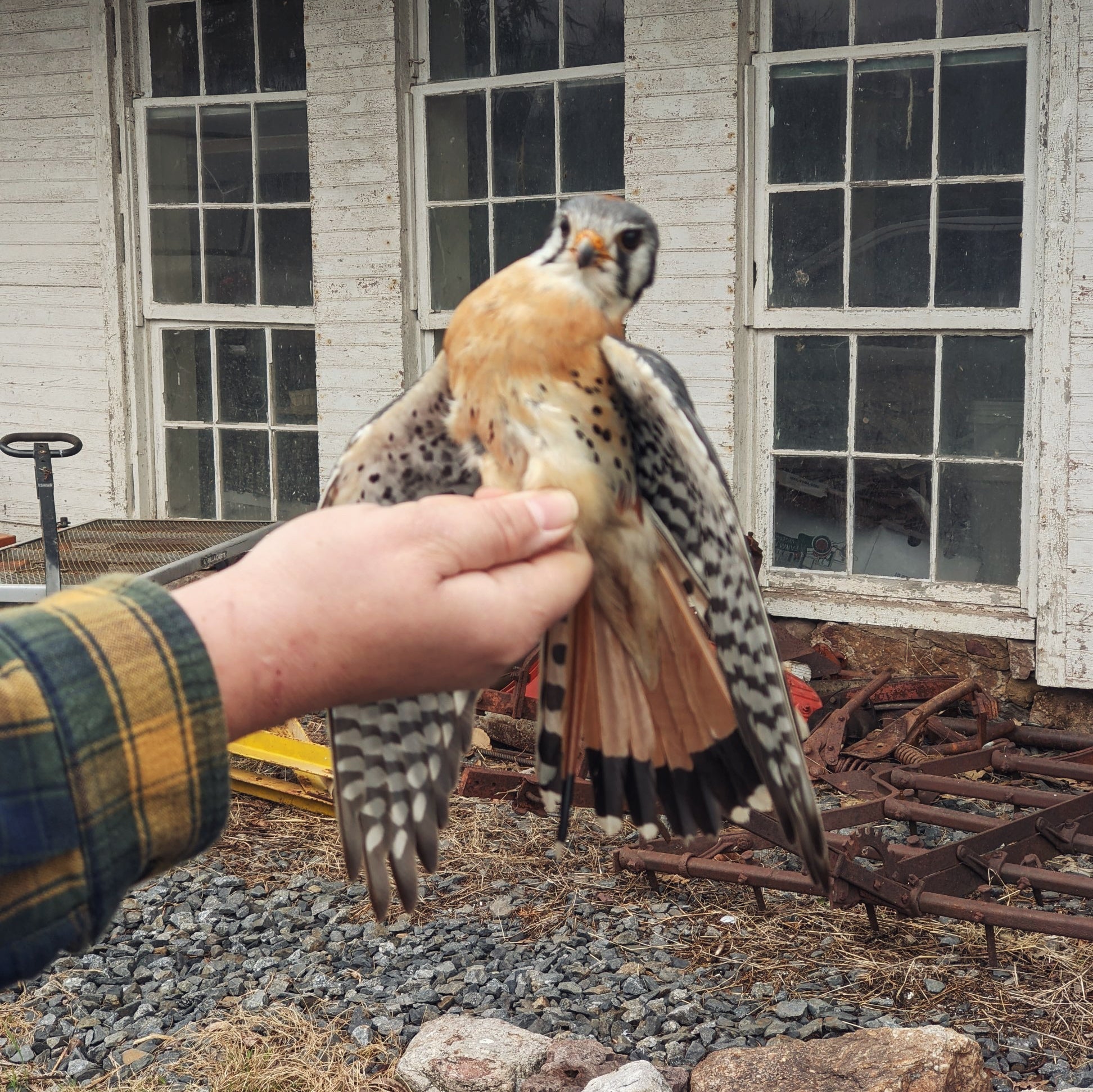
Katydid Hill is also home to many other kinds of animals, and we try to honor that habitat alongside and as part of our working farm landscape.
Of course the biggest things we can do is grow all our crops chemical-free!
Little things also make a difference, like leaving bee balm stalks standing in the winter for bluebirds and having roses bloom in the fencerows to provide homes and food for lots of birds and critters.
Even in the built environment, the barn swallows nest in the rafters and swoop all around the farm in summer - we adore watching them catch insects in the air when we are mowing the grass.
Eagles and hawks are always soaring over us and we are also super lucky to have a kestrel nesting box, which is monitored and used for research at the nearby Hawk Mountain Sanctuary.
Kestrels are the smallest raptor (how badass is that) and eat tons of insects and mice - super cute pest management!!
Katydid Hill grew out of Tooth of the Lion Farm, which was in a lot of ways a one-woman show - but of course no one does anything alone and I had plenty of help and love from some amazing staff, friends, family and volunteers!
We are still a woman-owned farm. For the sake of full transparency, Ben and I own the business together 60/40, because we wanted to honor the foundations of the farm as a woman-owned business.
I was lucky enough to have learned from and worked alongside amazing women farmers and queer farmers - and feminist men who do the dishes. And I learned so much about myself when I started farming - using my body every day taught me to value myself in new ways.
Learning how to farm was (and still is) empowering in the real sense - like, not the cheesy corporate “women empowerment”.
I have always wanted to create a farm where all the farmers and workers feel comfortable and have an opportunity to get to know themselves. Ben brings a lot of the feelings and softness to the crew - he is a Pieces and all - and we work together on building a farm that supports all the people involved.
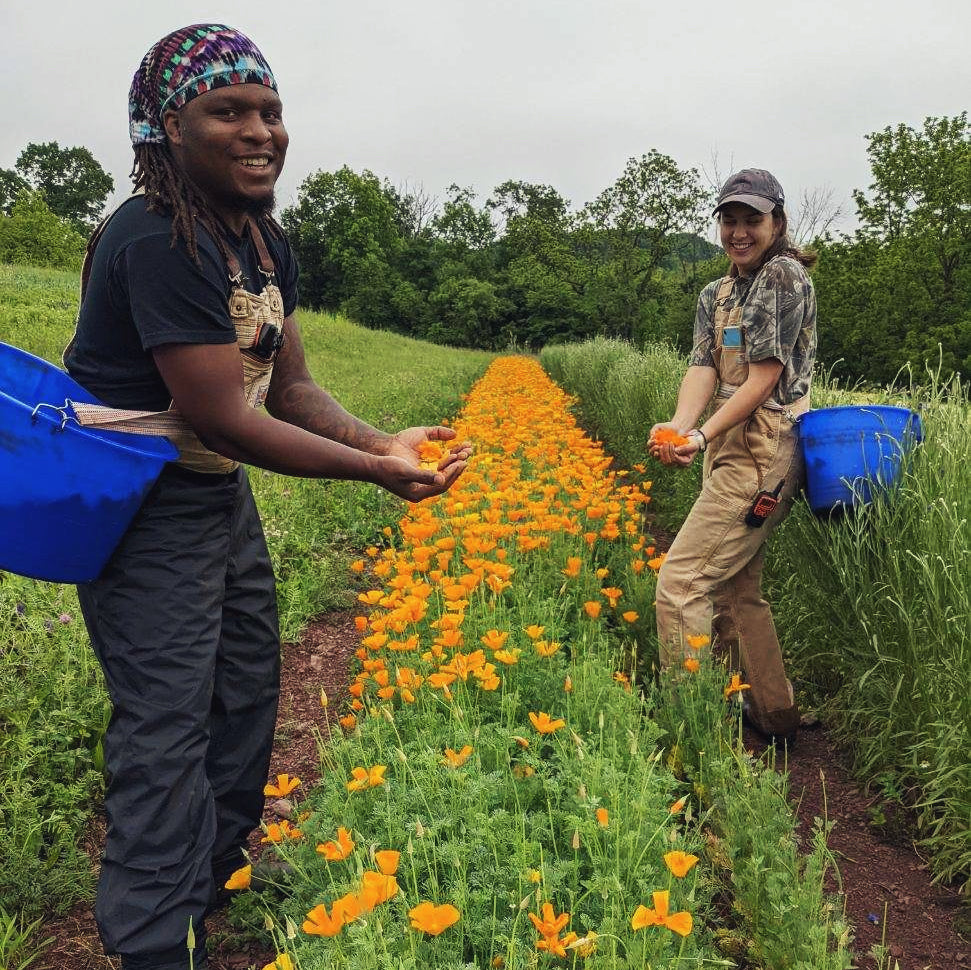
Farmer training
We have been so lucky to work with some amazing staff over the years! In 2021 we joined the Pasa Sustainable Ag’s Diversified Vegetable Apprenticeship program - a state-registered, two year apprenticeship that bridges the gap for people between being a farmworker and managing or starting your own farm.
And yes, we were the first herb farm in the program - it’s really not so different from growing veggies - and apprentices get to learn all the equipment and systems that we’ve implemented to grow and create herbal products from seed to market.
Ben and I have been truly blessed with the ability to start and run a farm and we want to help others along their path to farm ownership or management or whatever they want to do - farming teaches all kinds of skills!

